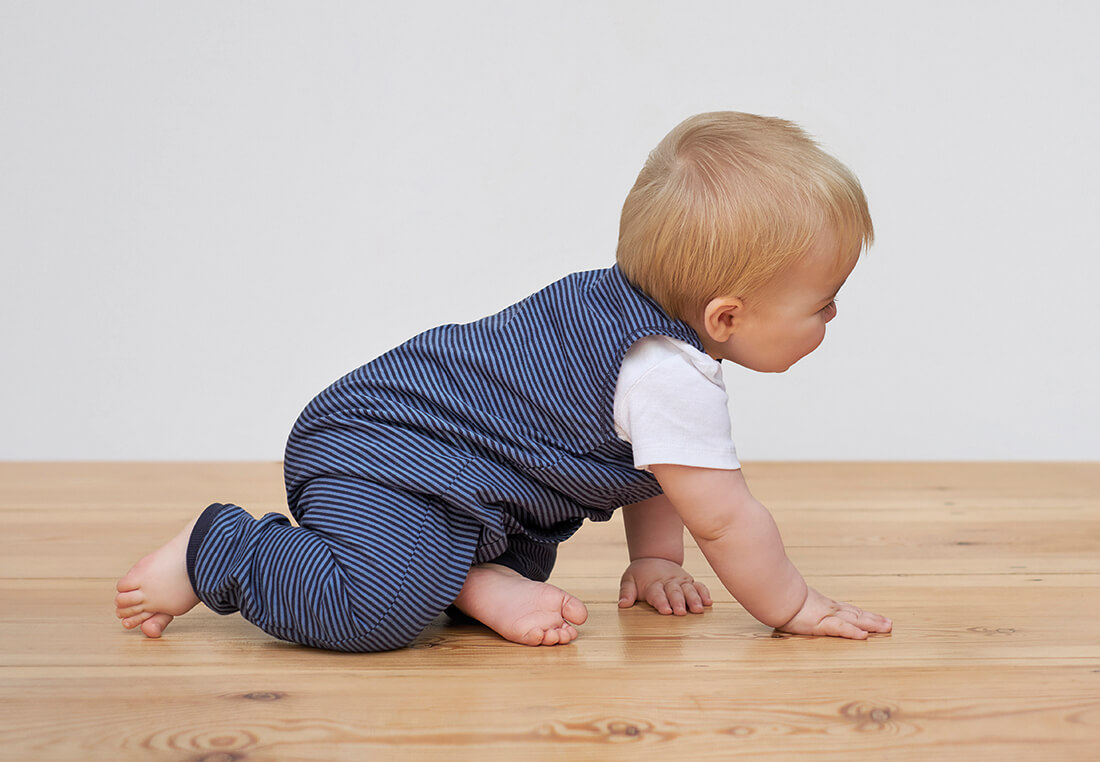
As we approach an eleventh month of restricted measures and lockdowns, in this first of a series of blogs, we’re taking a look at the developmental changes our children will have experienced during this extended time at home and the importance to keep them moving for their emotional and physical development. Here we focus on very young children, from newborn to two years.
A little one aged 0-12 months is developing reflex movements and building the fundamentals of gross motor development. Voluntary movement is starting to develop, such as controlling their head position, reaching and grasping for objects and attempting first steps. At 12-24 months, a baby comes on leaps and bounds in its development! The child will take its first steps, standing upright and developing specific movement skills from engaging in specific activities. During this fascinating period, a child’s muscles, nerves, reflexes, bones and brain are all developing at an amazingly rapid pace.
A very young child’s foot is flexible. This is because the muscles have not yet developed and their ligaments have not yet stabilised, so their walking pattern is such that their weak and unstable foot is not overloaded. Initially the child’s walking pattern is quite flexor dominant, in other words it has very ‘up and down’ knee movements. This means their foot strikes the floor very flat and without any heel strike as they walk with a ‘stomping’ gait. Reflexes change as a baby develops into a child and a child’s walking develops as a reflection of its improving ability to coordinate movement and sense its surroundings, as well as its increasing bone and muscle strength.
Development at this age is thought of as ‘base camp’ for context specific movements, so a broad array of movement activities at this stage is highly beneficial.
Learn more about gross motor development and how movement is especially beneficial for children at this age from our friends at Micro Scooters HERE.